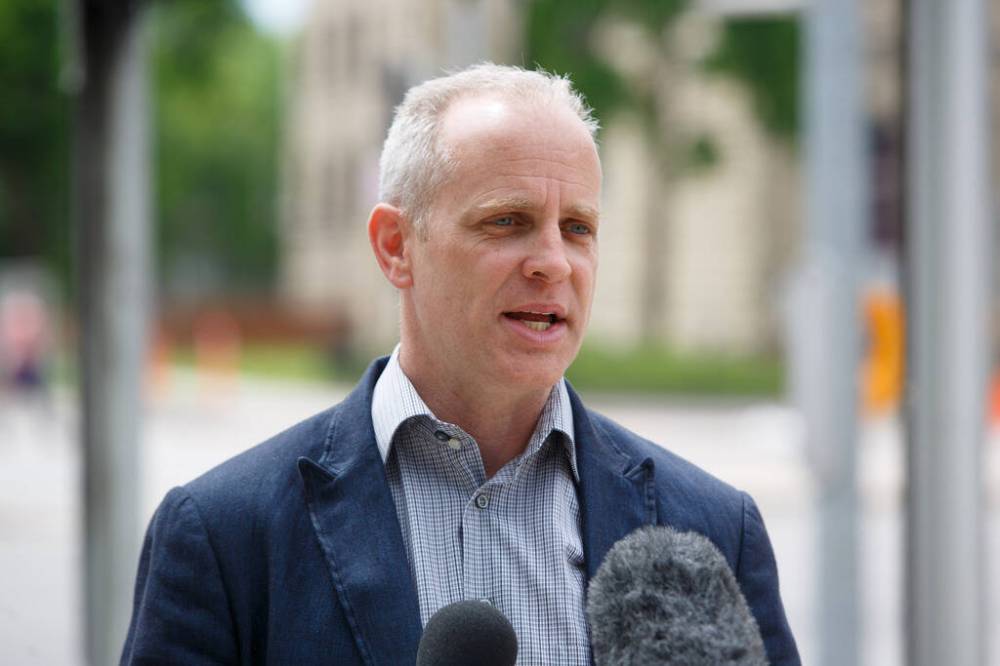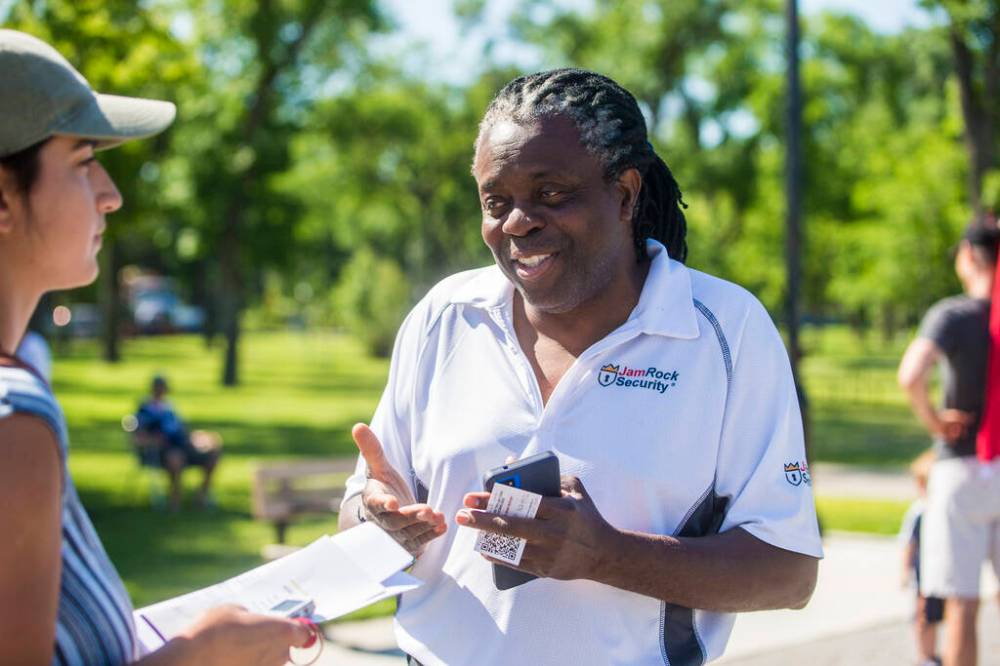Mayoral candidate seeks city strategy for new Indigenous residents in need
Advertisement
Read this article for free:
or
Already have an account? Log in here »
To continue reading, please subscribe:
Monthly Digital Subscription
$1 per week for 24 weeks*
- Enjoy unlimited reading on winnipegfreepress.com
- Read the E-Edition, our digital replica newspaper
- Access News Break, our award-winning app
- Play interactive puzzles
*Billed as $4.00 plus GST every four weeks. After 24 weeks, price increases to the regular rate of $19.00 plus GST every four weeks. Offer available to new and qualified returning subscribers only. Cancel any time.
Monthly Digital Subscription
$4.75/week*
- Enjoy unlimited reading on winnipegfreepress.com
- Read the E-Edition, our digital replica newspaper
- Access News Break, our award-winning app
- Play interactive puzzles
*Billed as $19 plus GST every four weeks. Cancel any time.
To continue reading, please subscribe:
Add Free Press access to your Brandon Sun subscription for only an additional
$1 for the first 4 weeks*
*Your next subscription payment will increase by $1.00 and you will be charged $16.99 plus GST for four weeks. After four weeks, your payment will increase to $23.99 plus GST every four weeks.
Read unlimited articles for free today:
or
Already have an account? Log in here »
Hey there, time traveller!
This article was published 15/07/2022 (1189 days ago), so information in it may no longer be current.
A new “arrival strategy” would aim to help Indigenous folks who need some support after moving to Winnipeg settle in successfully — if Rick Shone is elected as the city’s next mayor.
Shone says his “Embracing Winnipeg” strategy would create two new full-time positions within the city’s Indigenous relations division. Those staff would provide a co-ordinated access point for local programs that provide training, education, scholarship, employment, literacy, nutrition, child care, housing and cultural supports.
Since Winnipeg’s population includes the largest percentage of Indigenous people of any major city in Canada — and that portion is expected to grow — it’s important to ensure supports for those least prepared for the move are easy to access, said Shone.

“We need to develop a strategy… (and) to be a willing partner to any organization that is offering supports to help streamline that transition so that it’s safe and (happens) in culturally appropriate ways,” the small-business owner said.
He stressed the strategy must involve a partnership with Indigenous governments and community organizations. In some cases, the idea would aim to prevent poverty, since community outreach groups have long reported Indigenous Winnipeggers are over-represented among those experiencing homelessness.
Shone said the idea was partly inspired by conversations he had with people living on the streets and in bus shelters.
“Finding the agencies (who can help) has also been a really difficult challenge for them,” he said Friday.
Under the strategy, the municipal government would not create new programs but help act as a liaison to connect those in need with existing services.
While Shone was the sole speaker at Friday’s announcement, he said it followed discussions with Cree elder Edna Nabess.
Nabess said she believes there’s a lack of awareness among many of the city’s most vulnerable, unsheltered residents about the services that can help them, which she expects this proposed program would help address.
“All these programs are already here, they’re just not being utilized,” said Nabess. “There’s so many supports in the city here but people don’t know where to go.”
Meanwhile, another 2022 mayoral candidate says he would tackle crime by making significant investments in sports, arts and music programs. If elected mayor, Don Woodstock says he would devote $400 million annually to create recreational opportunities for youth in each of the next five years.
Woodstock said youth involved in sports are more likely to stay in school and avoid involvement with criminal activity.

“The problem is kids are finding it easier to get into gangs as opposed to getting into a sporting league,” the small-business owner said. “We’re busy following our tail and trying to solve the problem of crime by being reactive. It’s time to be proactive.”
Woodstock said he believes provincial and federal dollars, as well as donations, could be tapped to offset the cost of his pledge, while the City of Winnipeg could also find savings to help pay for it.
“There’s so much waste in terms of… the top-heavy management of the city… We have to efficiently manage what we have.”
Jenny Motkaluk, Chris Clacio, Scott Gillingham, Robert-Falcon Ouellette, Shaun Loney, Idris Adelakun, Rana Bokhari, Desmond Thomas, Glen Murray and Jessica Peebles have also registered to run for mayor. Mayor Brian Bowman is not seeking a third term.
Winnipeggers will elect their next mayor and city council Oct. 26.
joyanne.pursaga@freepress.mb.ca
Twitter: @joyanne_pursaga

Joyanne is city hall reporter for the Winnipeg Free Press. A reporter since 2004, she began covering politics exclusively in 2012, writing on city hall and the Manitoba Legislature for the Winnipeg Sun before joining the Free Press in early 2020. Read more about Joyanne.
Every piece of reporting Joyanne produces is reviewed by an editing team before it is posted online or published in print — part of the Free Press‘s tradition, since 1872, of producing reliable independent journalism. Read more about Free Press’s history and mandate, and learn how our newsroom operates.
Our newsroom depends on a growing audience of readers to power our journalism. If you are not a paid reader, please consider becoming a subscriber.
Our newsroom depends on its audience of readers to power our journalism. Thank you for your support.
History
Updated on Friday, July 15, 2022 6:54 PM CDT: Corrects typo of word ensure

